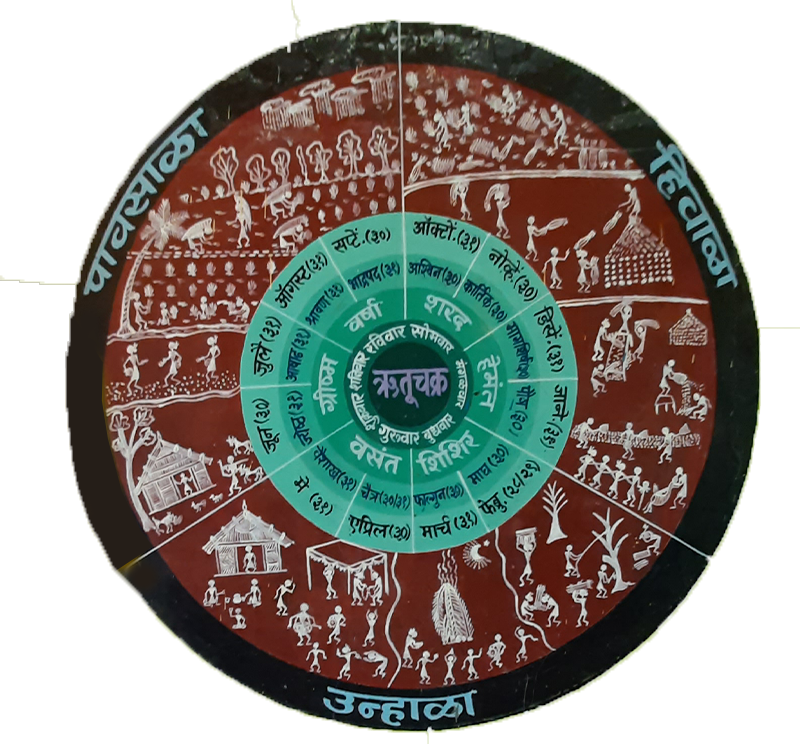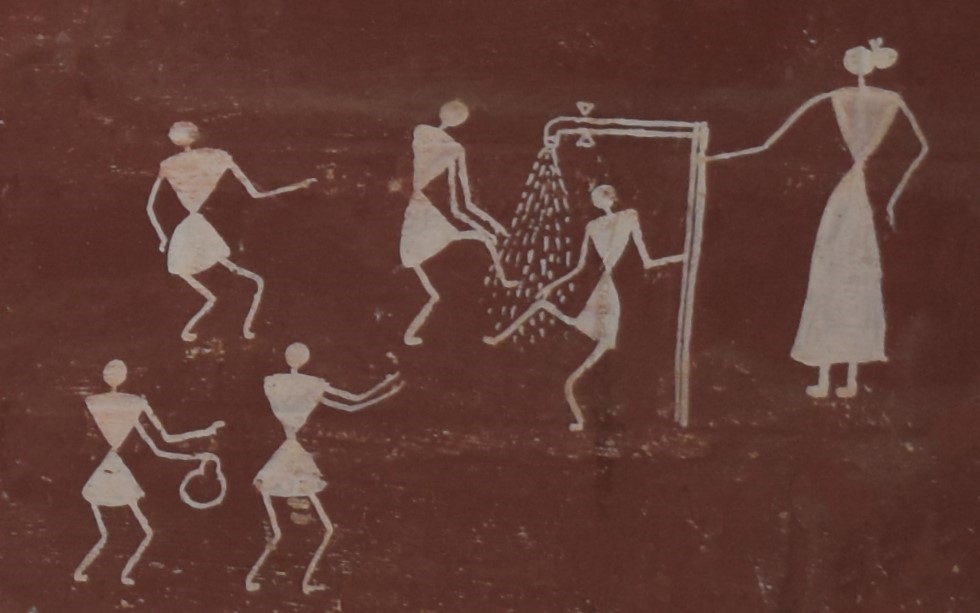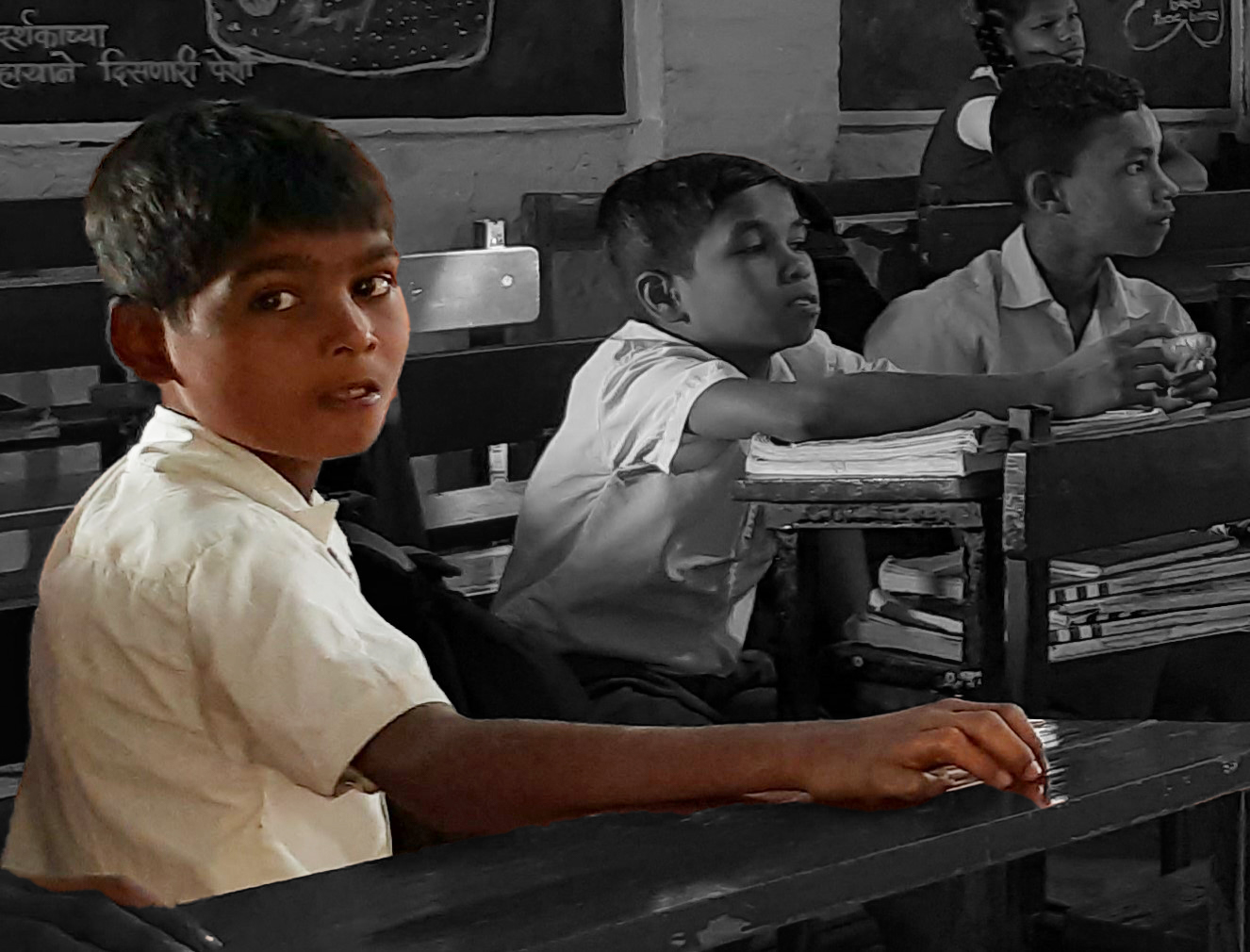Primary School – Vikaswadi Prathamik Shala
Vikaswadi Primary School (विकासवाडी प्राथमिक शाळा), is a model school that upholds the principles laid down by Taratai and Anutai. With classes ranging from 1st to 8th standard, our primary school caters to 350+ students as of 2022.
A remarkable 95% of our students belong to tribal communities residing in the surrounding villages and hamlets of Kosbad hills.
It is noteworthy that our school receives aid for Std 1 to 7 only, and it can take care of Teacher’s salaries. Expenses for Std.8 are and other administrative and maintenance costs are entirely shouldered by the dedicated Trust – Nutan Bal Shikshan Sangh.


A Glimpse into the Past
- In 1956, there were about 350 students who were studying with 225 tribals amongst them. Primary school, kindergarten, and nursery school were all integrated.
- Efforts were made to increase attendance in Primary Schools by removing hostel facilities for two years as an experiment. The government curriculum was like the basic foundation curriculum.
- In the period 1957 – 58, Meadow Schools (Kuranshala), Industrial training classes (Udyogshala) and Night school (Raatshala) were started on Kosbad hill. For the Primary School, NBSS chose agriculture as the primary base for schooling, to counter the apathy of the parents and increase the attendance of the children.
- “Orientation Training Programme” was an initiative where a special curriculum was designed for the tribal students. A single teacher would conduct classes for varying age groups. There were nigh schools also. This experiment was possible with the grant of Rs. 10,000 received from NCERT. About 500-600 students received primary education.
- With the help of the State Government’s Social Welfare Department 2 hostels were run during that period.
Making Education Meaningful
A small experiment of adding Work Experience was started from October 1, 1975. Agriculture, carpentry, sewing, were included in the 5th standard. This addition had a magical effect on the reduction of failure and dropout rate of the students, along with better participation by girls. The Work Experience programme was then extended for classes up to 7th standard.


A Visionary Approach –
For the Young Adults
Since Dahanu was primarily a forest area, an attempt was made to teach carpentry. Correspondence was made with the Government’s Cottage Industry Department. The approval of the Bombay government and the confirmation of the Delhi government were obtained. Finally, carpentry was decided as a complementary training to be provided. This built-in skill development training was way ahead of its time.
In December 1961, it was planned that the young adult students would get a scholarship of Rs.10/- per month for the 3-4 hours of carpentary work, for this course which was of two years duration. The rest of the time they would spend gaining formal education. By the end of this 2 months the students were expected to clear 4th standard schooling. The young adults could then start their own enterprises.
In the initial period, 13 out of 17 students collected some capital. Ten children got Rs. 225/- from the Department of Social Welfare and Rs. 75/- each from the Zilla Parishad.
The tiled house behind the Vikaswadi Hostel used to be a workshop where wooden items, toys, coloured sandals, wooden teaching aids for Balwadi were being produced in this workshop.

Transform a Life
With your help and so many others who have already made donations, we can provide access to education to the truly disadvantaged tribal children.
